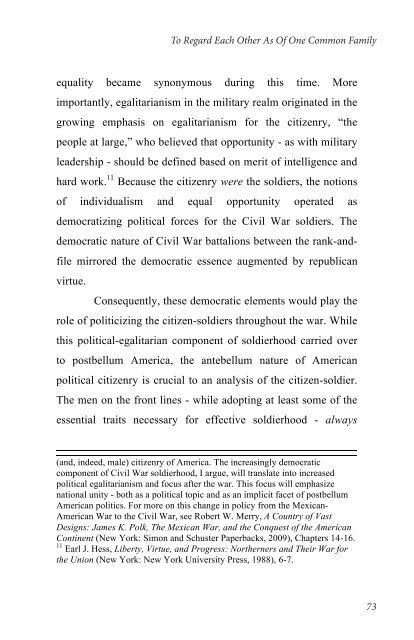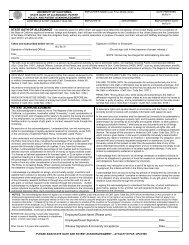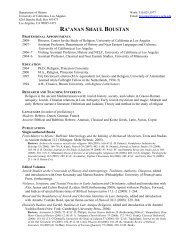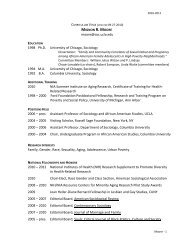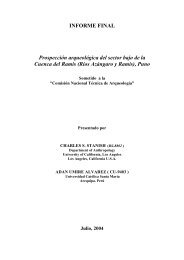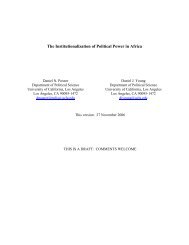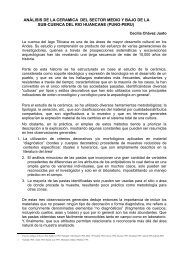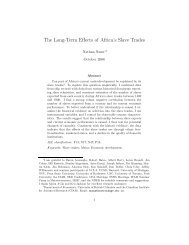QUAESTIO - Social Sciences Division - UCLA
QUAESTIO - Social Sciences Division - UCLA
QUAESTIO - Social Sciences Division - UCLA
You also want an ePaper? Increase the reach of your titles
YUMPU automatically turns print PDFs into web optimized ePapers that Google loves.
To Regard Each Other As Of One Common Family<br />
equality became synonymous during this time. More<br />
importantly, egalitarianism in the military realm originated in the<br />
growing emphasis on egalitarianism for the citizenry, “the<br />
people at large,” who believed that opportunity - as with military<br />
leadership - should be defined based on merit of intelligence and<br />
hard work. 11 Because the citizenry were the soldiers, the notions<br />
of individualism and equal opportunity operated as<br />
democratizing political forces for the Civil War soldiers. The<br />
democratic nature of Civil War battalions between the rank-andfile<br />
mirrored the democratic essence augmented by republican<br />
virtue.<br />
Consequently, these democratic elements would play the<br />
role of politicizing the citizen-soldiers throughout the war. While<br />
this political-egalitarian component of soldierhood carried over<br />
to postbellum America, the antebellum nature of American<br />
political citizenry is crucial to an analysis of the citizen-soldier.<br />
The men on the front lines - while adopting at least some of the<br />
essential traits necessary for effective soldierhood - always<br />
(and, indeed, male) citizenry of America. The increasingly democratic<br />
component of Civil War soldierhood, I argue, will translate into increased<br />
political egalitarianism and focus after the war. This focus will emphasize<br />
national unity - both as a political topic and as an implicit facet of postbellum<br />
American politics. For more on this change in policy from the Mexican-<br />
American War to the Civil War, see Robert W. Merry, A Country of Vast<br />
Designs: James K. Polk, The Mexican War, and the Conquest of the American<br />
Continent (New York: Simon and Schuster Paperbacks, 2009), Chapters 14-16.<br />
11 Earl J. Hess, Liberty, Virtue, and Progress: Northerners and Their War for<br />
the Union (New York: New York University Press, 1988), 6-7.<br />
73


